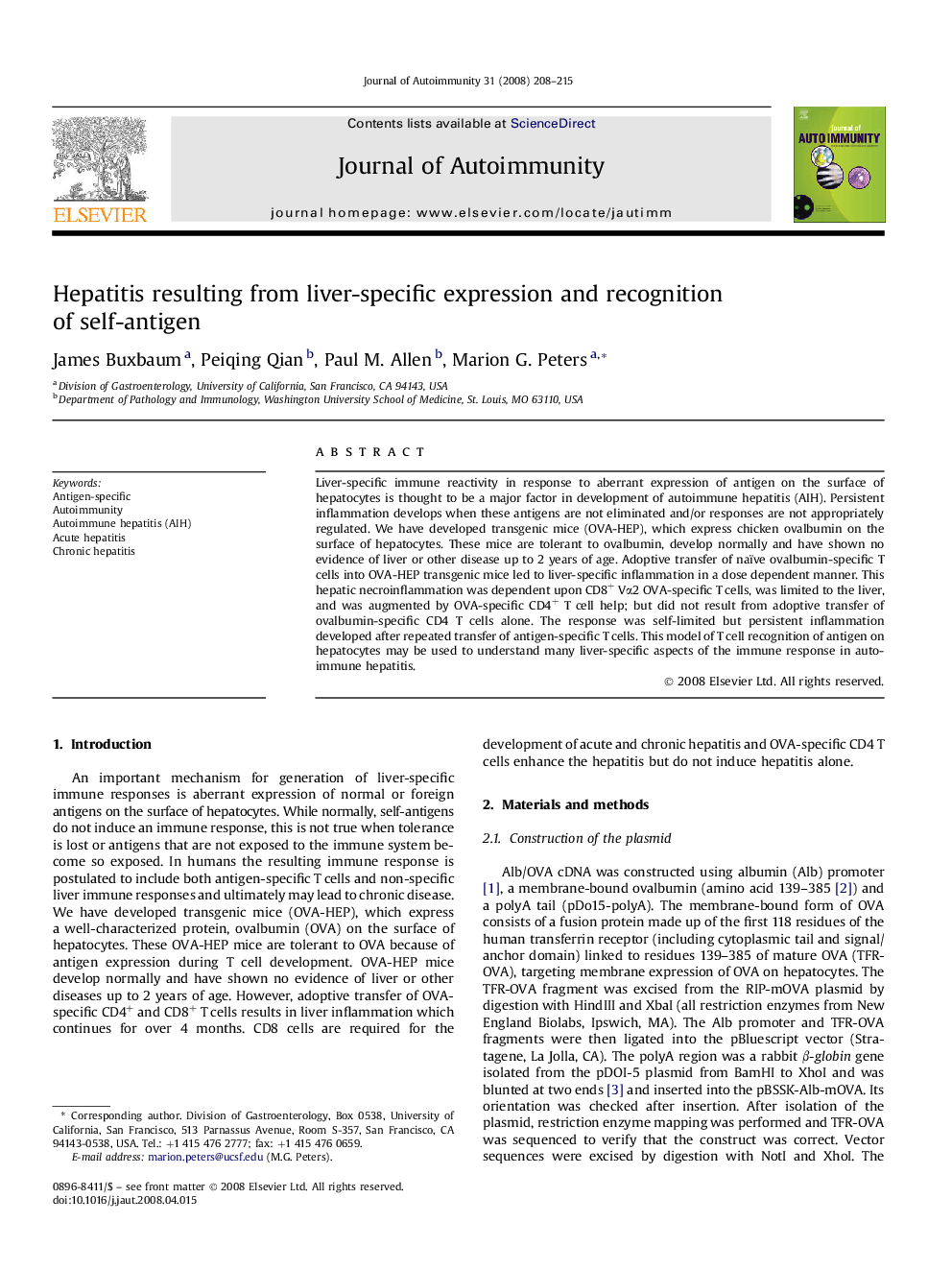| Article ID | Journal | Published Year | Pages | File Type |
|---|---|---|---|---|
| 3368357 | Journal of Autoimmunity | 2008 | 8 Pages |
Liver-specific immune reactivity in response to aberrant expression of antigen on the surface of hepatocytes is thought to be a major factor in development of autoimmune hepatitis (AIH). Persistent inflammation develops when these antigens are not eliminated and/or responses are not appropriately regulated. We have developed transgenic mice (OVA-HEP), which express chicken ovalbumin on the surface of hepatocytes. These mice are tolerant to ovalbumin, develop normally and have shown no evidence of liver or other disease up to 2 years of age. Adoptive transfer of naïve ovalbumin-specific T cells into OVA-HEP transgenic mice led to liver-specific inflammation in a dose dependent manner. This hepatic necroinflammation was dependent upon CD8+ Vα2 OVA-specific T cells, was limited to the liver, and was augmented by OVA-specific CD4+ T cell help; but did not result from adoptive transfer of ovalbumin-specific CD4 T cells alone. The response was self-limited but persistent inflammation developed after repeated transfer of antigen-specific T cells. This model of T cell recognition of antigen on hepatocytes may be used to understand many liver-specific aspects of the immune response in autoimmune hepatitis.
